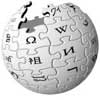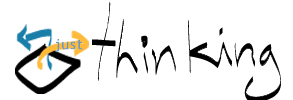 In 1997 two Ph.D. students registered the domain www.google.com. Their vision: to "organize the world's information and make it universally accessible and useful". Today nearly everyone uses Google as their search engine. Search engines are powerful: they are the gateway into the Internet, the librarians that tell you what books to read, what suits your needs.
Google uses a "democratic" model:
In 1997 two Ph.D. students registered the domain www.google.com. Their vision: to "organize the world's information and make it universally accessible and useful". Today nearly everyone uses Google as their search engine. Search engines are powerful: they are the gateway into the Internet, the librarians that tell you what books to read, what suits your needs.
Google uses a "democratic" model:
Google interprets a link from page A to page B as a vote... pages that are themselves "important" weigh more heavily and help to make other pages "important."
While Google works most of the time, its weaknesses are apparent. Like any democracy, popular opinion is always suspect. That everyone believes "A" is the best option doesn't make it so. The "right" option can truly be known only if all information pertaining to it is filtered - but again, what happens if someone controls the filter? Google may be objective, it's mission admirable, but it's far from infallible. Many website owners routinely try to "bump up" their Google ratings by creating sites linking each other.
 Another popular information source is the Wikipedia, "the free encyclopedia that anyone can edit." Also founded on democratic principles, anyone can edit or start an article on Wikipedia. It relies on two assumptions: that its self-governing community will weed out pranksters and malicious writers, and that as an article is edited by more and more people it will gain objectivity and accuracy. Again a noble intention, but prone to the same fallacies. Robert McHenry, former editor of the Encyclopedia Britannica, was scathingly critical of Wikipedia in an article written November, 2004: "The Faith-Based Encyclopedia". He asserts that the common user simply lacks the experience and knowledge to provide others with an accurate source of information. He likens it to a public toilet:
Another popular information source is the Wikipedia, "the free encyclopedia that anyone can edit." Also founded on democratic principles, anyone can edit or start an article on Wikipedia. It relies on two assumptions: that its self-governing community will weed out pranksters and malicious writers, and that as an article is edited by more and more people it will gain objectivity and accuracy. Again a noble intention, but prone to the same fallacies. Robert McHenry, former editor of the Encyclopedia Britannica, was scathingly critical of Wikipedia in an article written November, 2004: "The Faith-Based Encyclopedia". He asserts that the common user simply lacks the experience and knowledge to provide others with an accurate source of information. He likens it to a public toilet:
...it may seem fairly clean, so that he may be lulled into a false sense of security. What he certainly does not know is who has used the facilities before him.
Another, more vociferous anti-Wikipedia site claims that Wikipedia's perceived objectivity is a false front. Behind the scenes, it claims, there are cliques of elitist "editors" who hold considerable clout, who have the final say over what edits make it to the final article - in effect, making it no less subjective than any other source. Maybe even less so, as being popular in cyberspace isn't an indicator of how accurate your writing/editing may be. To its credit, Wikipedia itself has articles documenting the controversy, even linking to sites like Uncyclopedia which parody it.
But still, whenever I find myself wanting to look something up I turn to Wikipedia almost every time. Same thing whenever I need to search for a webpage, I Google it. I suspect there are many others like me. It's only recently that I have begun to question my sources of information.
Ours is an age where information flows more freely than ever before. On one side it can give us immense knowledge. On the other it can also misle us. It's up to all of us to be careful in what we allow through our "filter". Knowledge is power - people who control the flow of knowledge are even more powerful.

3 comments:
I do say that i agree with you, and when you post stuff about google it boosts my stock!
Well done!
[url=http://lxrqcysc.com/yape/opnj.html]My homepage[/url] | [url=http://qtvebmub.com/qptw/tafu.html]Cool site[/url]
Nice site!
http://lxrqcysc.com/yape/opnj.html | http://viycrfil.com/bfeb/tfht.html
Post a Comment